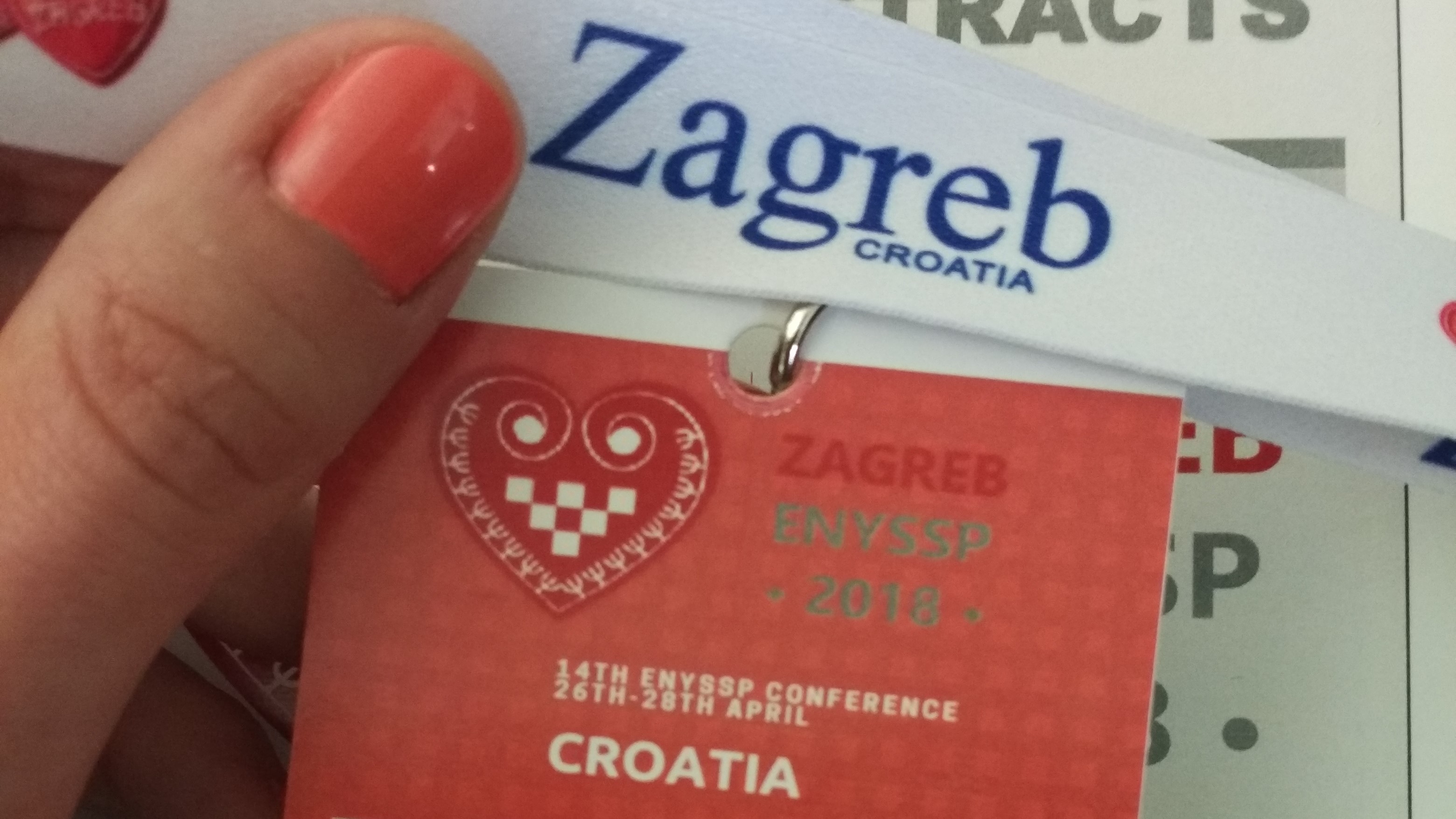April 26-28th 2018, Zagreb, Croatia. This was the first ENYSSP conference since the move from autumn to spring (actually the 14th), meaning it has been just half a year since the previous one in Bratislava.
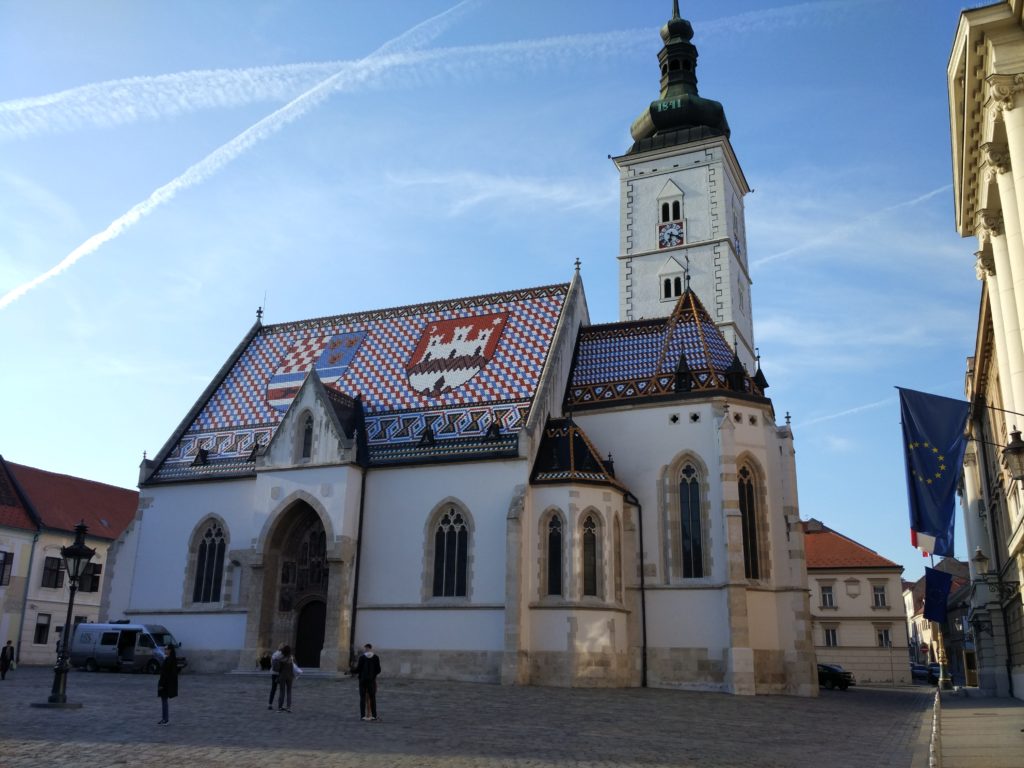
At first it felt it’s too soon, now I wish it would always happen twice a year! It was my 8th ENYSSP conference and I have now participated in more of them than I didn’t (8/14)! Yay! Yet it never ceases to amaze and inspire.
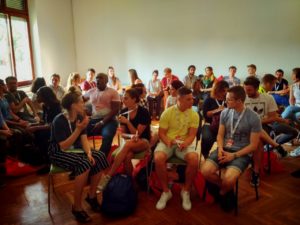
I was very excited to run a workshop titled “Doing Phenomenology of Life: Becoming a Mindful Practitioner”, where I introduced the parallels between phenomenological method of studying lived experience and mindfulness practice, and together with over 40 participants explored what is the human experience of practising mindfulness like. The diversity of human experiences shared in our session was fascinating, and hopefully will encourage the participants to turn towards (not away from) human experience in their life and work with curiosity, kindness and acceptance.
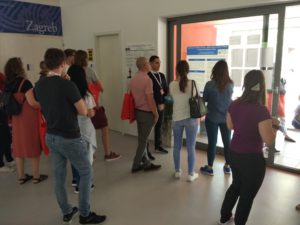 To me this year’s conference reflected the shift in understanding in the field of sport and exercise psychology and these are the key themes that I absolutely loved exploring in both formal sessions and in relaxed discussions with colleagues on the grass, under the Zagreb sun.
To me this year’s conference reflected the shift in understanding in the field of sport and exercise psychology and these are the key themes that I absolutely loved exploring in both formal sessions and in relaxed discussions with colleagues on the grass, under the Zagreb sun.
Stories, identities, meaning
Psychology as a relatively new scientific field has been guilty of trying too hard to adopt the scientific method to study human behaviour and mind, when in fact full understanding in psychology may not even be possible due to complexities of environmental, mental and biological influences. So there is a need to go beyond numbers and lab experiments to explore these complexities from a first-person perspective and to tap into the subjective nature of human experience.
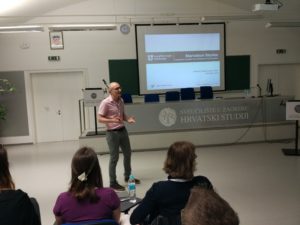
Keynote of Anthony Papathomas did just that by offering a rich qualitative insight into eating disorders in sports and shifting our attention to stories people tell and how they make sense of this world through construction of narratives. Furthermore, in Anthony’s workshop we explored the role of institutional and cultural master narratives in sports and the ways we can work with individual narratives. “What is my story? What is the master narrative? Are there alternative stories to source inspiration for my own?” – these and other questions fuelled the discussions as participants continued to reflect on their experiences with the newly heightened narrative awareness.
Potholes, fuckups, authenticity
ENYSSP has always been a place for young professionals to feel comfortable in their own skin, to dare to question, reflect, ask for help and make mistakes.
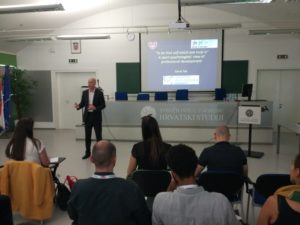
Therefore, it was spot on to have David Tod’s keynote exploring the topic of professional development of a sport psychologist. He discussed the pathways of growth and the evolution of a practitioner, revealing the multitude of routes and potential destinations. In his speech and workshop David encouraged participants to embrace the potholes on a long and winding road, to explore ways how one can learn from challenging experiences and to move towards authenticity. After all, “Your greatest instrument is you, yourself, and the work of self-understanding is endless.” (Irving Yalom, 2012)

The theme continued in the Knowledge Cafe where the hashtag #fuckups gathered a lot of participants to the table for thematic discussions and sharing of experiences of failure and growth. The peacock metaphor introduced by ENYSSP President Peter Schneider at the opening speech really came to life, with participants spreading their feathers and shining with diversity, authenticity and passion.
Holistic approaches to sport psychology
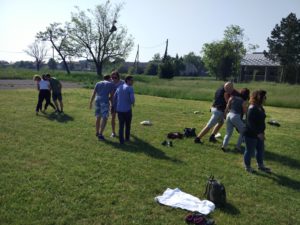
Another emerging theme was the need to go beyond the focus on performance enhancement and athletic identities, and to adopt a holistic approach embracing athlete as a whole – mind and body inseparable, human being with multiple identities and multiple challenges.
We had workshops on embodied learning experiences and integrating mindful yoga to sport psychology practice, as well as presentation on teaching life skills through sport to refugee children.
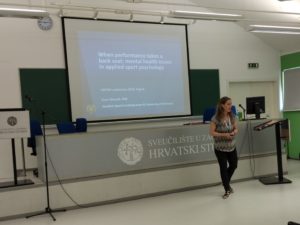
Finally, Karin Moesch’s keynote “When performance takes a back seat” turned our attention to mental health disorders in elite athlete populations, discussing its relationship to performance and the difficulties a sport psychology practitioner might encounter recognising it. Karin shared good practice examples from European countries and voiced the need to adopt more inclusive view to sport psychology services.
To conclude
 Next to official keynotes, workshops and poster session, a lot was going on in between – coffee breaks, dinner and dancing, relaxing in the grass, exploring Zagreb… these were the times of enlightening discussions with old and new friends, where mind connected with body, growth was found in adversity, second wave of CBT reconciled with mindfulness-based approaches and inspiration was boosted once more.
Next to official keynotes, workshops and poster session, a lot was going on in between – coffee breaks, dinner and dancing, relaxing in the grass, exploring Zagreb… these were the times of enlightening discussions with old and new friends, where mind connected with body, growth was found in adversity, second wave of CBT reconciled with mindfulness-based approaches and inspiration was boosted once more.
See you in Trieste!
— Yours, Rita
References
Irvin D. Yalom (2012). “The Spinoza Problem: A Novel”, p.167, Basic Books

